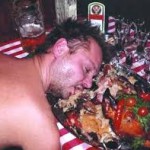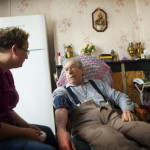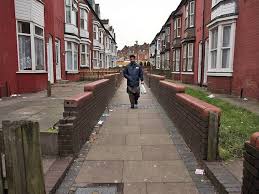Some of the comments following my last post asked the same question — and it needed to be asked: How might you apply this perspective? What kind of treatment program would embody these concepts? Let’s get concrete…how would it work?
I more or less ended that post with the following proclamation (copied here, in part, from that post):
Any approach that meets addicts when and where they’re ready to quit is well positioned to help them move onward. Community-based settings can fill this role most easily, because…there is no line-up at the door… Nor, hopefully, are there rigid policies that preempt the addict’s personal incentive. When desire is ready to arc from the goal of immediate relief to the goal of a valued future, treatment can begin. Not by inducing desire—only frustration and suffering can do that—but by capturing and holding one’s vision of that future…[while the desire knob is turned up to max.]
Or, to put it in terms of the biology, “what will work best is whatever is available when the synaptic avenues of desire make contact with brain regions responsible for perspective change.”
But you often need other people — either one person or a group of people — to hold those elements in place, to help make it happen. Which is why treatment must be interpersonal if it’s to have any chance of working.
So, at the end of the book, and here in today’s post, I provide an example that captures the critical importance of striking while the iron is hot — when desire is turned up high and synched (for the moment) with the vision of a future self free of addiction. It’s a radical treatment initiative that  uses “other people” at the grass roots level, to hold the pieces together before the iron cools. And it’s been inspired and shaped by my friend Peter Sheath, a former addict and senior associate of a consulting group for service delivery in the U.K. Thank you, Peter, for inspiring me with your description of this exciting venture.
uses “other people” at the grass roots level, to hold the pieces together before the iron cools. And it’s been inspired and shaped by my friend Peter Sheath, a former addict and senior associate of a consulting group for service delivery in the U.K. Thank you, Peter, for inspiring me with your description of this exciting venture.
 The city of Birmingham (the second largest in England) is investing massively in this pilot program, designed to provide help for addicts at the very moment when their desire for change is ignited. Treatment nodes are distributed across the community, through sites that are most available to addicts in their day-to-day lives. Shopkeepers, including newsagents,
The city of Birmingham (the second largest in England) is investing massively in this pilot program, designed to provide help for addicts at the very moment when their desire for change is ignited. Treatment nodes are distributed across the community, through sites that are most available to addicts in their day-to-day lives. Shopkeepers, including newsagents,  bakers, butchers, and pharmacists, are trained in brief interventions. Participants’ shops display an ROR (“Reach Out Recovery”) sticker on the front window, so that addicts immediately see that they are “recovery-friendly” and ready to help. People come in off the street, perhaps buying a loaf of bread at the same time, and say “I’ve had enough! I’m ready to
bakers, butchers, and pharmacists, are trained in brief interventions. Participants’ shops display an ROR (“Reach Out Recovery”) sticker on the front window, so that addicts immediately see that they are “recovery-friendly” and ready to help. People come in off the street, perhaps buying a loaf of bread at the same time, and say “I’ve had enough! I’m ready to  quit!” Then the shopkeeper tells them they’ve come to the right place, takes a quick inventory, and advises them on what to do next. “Hey, reduce your drinking a bit, and then pop by and talk with me this afternoon or tomorrow.” Or, in more severe cases, “I won’t be able to work with you but I know somebody who can.” People can be referred
quit!” Then the shopkeeper tells them they’ve come to the right place, takes a quick inventory, and advises them on what to do next. “Hey, reduce your drinking a bit, and then pop by and talk with me this afternoon or tomorrow.” Or, in more severe cases, “I won’t be able to work with you but I know somebody who can.” People can be referred  to “peer mentors” who will show up the following day to help them with difficult issues such as detox and other medical matters. Even taxi drivers have been recruited, so that someone en route to score can throw up his hands and call it quits without that incentive getting lost in translation.
to “peer mentors” who will show up the following day to help them with difficult issues such as detox and other medical matters. Even taxi drivers have been recruited, so that someone en route to score can throw up his hands and call it quits without that incentive getting lost in translation.
Obviously the community needs to be motivated to make this happen. But that’s a boon in itself, because it recasts the problem of addiction as everyone’s problem, not the burden of the individual alone. (Shades of Rat Park!) So the support is there, the immediacy is there, and the infrastructure is built and organized without any religious or medical axe to grind. And it’s free. The funding comes from the city, not from the addict’s already-stretched family.
I see this as a highly creative approach. Whether it will work as well as we hope remains to be seen. The project is inspired by intuitions about the mercurial nature of desire and the power it bestows on our most essential plans — an intuition that fits what we know of the neurophysiology of addiction. More generally, the project exemplifies the innovation and insight that can sprout when the disease model is retracted and a fresh perspective, free of orthodoxy and special interests, is allowed take in its place.

Leave a Reply